The insurance industry is rapidly evolving, and the incorporation of artificial intelligence (AI) is driving this transformation. AI tools have the potential to revolutionize the insurance industry by streamlining operations, enhancing customer service, and improving decision-making processes. With the vast amounts of data generated by the insurance industry, AI has the ability to provide valuable insights that were previously impossible to obtain.
In this blog, we will explore the best AI tools for the insurance industry, from fraud detection to claims processing. We will examine how these tools can improve the efficiency, accuracy, and overall performance of insurers, and what factors to consider when choosing an AI tool. By the end of this blog, you will have a better understanding of the benefits of AI in insurance and be equipped with the knowledge needed to make informed decisions about which AI tools to adopt.
Lemonade

Lemonade is a tech-driven insurance company that offers renters, homeowners, and pet insurance. The company uses artificial intelligence and behavioral economics to make the insurance process faster, more affordable, and more transparent. Lemonade's AI-powered platform can approve claims in seconds and offer personalized insurance policies to customers in just a few minutes. The company also has a strong social mission and donates a portion of unclaimed premiums to charity.
Pros
Cons
Overall Rank
Hi Marley
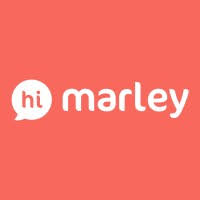
Hi Marley is an innovative platform that revolutionizes the insurance industry's customer experience. The platform uses a conversational AI to facilitate communication between insurers and policyholders, making it easier for customers to file claims and receive updates on their policies. The AI can understand natural language and can provide personalized support to customers. Additionally, Hi Marley's platform allows insurers to streamline their processes, reduce response times, and improve customer satisfaction. With the ability to integrate with existing insurance systems, Hi Marley has become a popular solution for insurance companies looking to improve their customer experience.
Pros
Cons
Overall Rank
Shift Technology
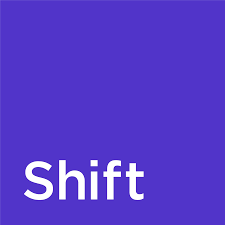
Shift Technology is a French startup that specializes in providing AI-powered fraud detection and prevention solutions to insurance companies. With its advanced algorithms and machine learning models, Shift Technology analyzes large volumes of data to identify fraudulent insurance claims and improve the efficiency of the claims process. The company has gained significant recognition in the insurance industry and has already partnered with over 100 insurers worldwide. Shift Technology's innovative approach to fraud detection has not only helped insurers save millions of dollars in fraudulent claims but has also helped them improve their customer experience by streamlining the claims process.
Pros
Cons
Overall Rank
Tractable

Tractable is a British artificial intelligence (AI) company that aims to revolutionize the insurance industry by using computer vision to automate damage assessments. By analyzing images of damaged vehicles, Tractable's AI technology can accurately estimate the cost of repairs, thereby speeding up the claims process and reducing costs for insurers. Tractable's AI technology is not limited to the automotive industry, however. The company is also exploring the use of computer vision to automate damage assessments in other industries, such as construction and healthcare. Overall, Tractable's AI technology has the potential to save time, money, and improve the customer experience for both insurers and policyholders.
Pros
Cons
Overall Rank
Freenome
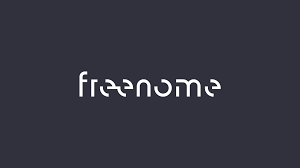
Freenome is a healthcare company that uses artificial intelligence and genomics to detect cancer at an early stage. Their technology analyzes a patient's blood sample for cancer-related biomarkers and genomic signals, providing personalized and accurate cancer screening. Freenome's approach has the potential to revolutionize cancer screening and diagnosis, as it is non-invasive, more accurate, and less expensive than traditional methods. The company is committed to improving patient outcomes and reducing the burden of cancer worldwide.
Pros
Cons
Overall Rank
Praedicat
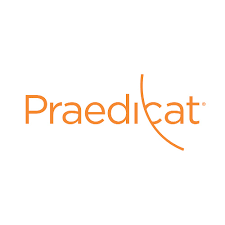
Praedicat is a cutting-edge technology firm that specializes in identifying emerging risks in the global economy and helping businesses navigate these challenges. Using advanced data analytics and predictive modeling techniques, Praedicat is able to provide its clients with insights into emerging risks that traditional risk management tools may overlook. Praedicat's innovative approach has been praised for its ability to help companies stay ahead of emerging risks and make more informed decisions about how to manage these risks. With a team of world-class experts in data analytics, risk management, and other fields, Praedicat is well-positioned to continue leading the way in risk management for years to come.
Pros
Cons
Overall Rank
Zest AI
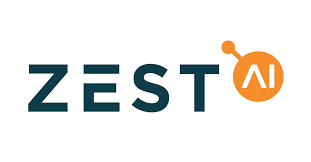
Zest AI is a powerful platform that uses machine learning and artificial intelligence to help financial institutions make better lending decisions. By analyzing vast amounts of data, Zest AI can identify patterns and make predictions about borrower behavior that traditional credit scoring methods may overlook. This can lead to more accurate assessments of credit risk and enable lenders to provide loans to a wider range of borrowers. Zest AI's technology is particularly useful for borrowers with limited credit histories or unusual credit profiles, as it can draw on a broader set of data points to assess their creditworthiness. Overall, Zest AI's innovative approach to credit scoring has the potential to transform the lending industry and increase access to credit for millions of people.
Pros
Cons
Overall Rank
Aclaimant
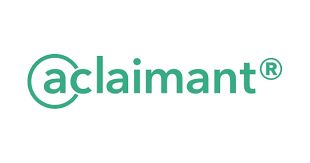
Aclaimant is a software platform that provides an all-in-one solution for workplace safety and risk management. The platform allows companies to digitize and streamline their incident reporting, investigation, and resolution processes, reducing the time and resources required to manage workplace incidents. Aclaimant also offers analytics and reporting capabilities, allowing organizations to track trends and identify areas for improvement. With its user-friendly interface and mobile app, Aclaimant enables workers to report incidents in real-time, increasing the accuracy and timeliness of incident reporting. Overall, Aclaimant offers a comprehensive solution for managing workplace incidents and improving safety outcomes.
Pros
Cons
Overall Rank
HyperScience
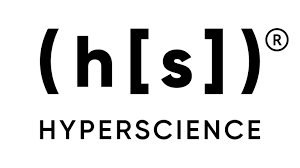
HyperScience is an AI-powered platform that automates document processing tasks such as data extraction, classification, and validation. It leverages machine learning models to continuously improve its accuracy and efficiency, reducing manual data entry and improving overall workflow productivity. HyperScience is particularly useful for businesses that rely heavily on manual data entry and paperwork, such as financial institutions, insurance companies, and healthcare providers. With its ability to process structured and unstructured data, HyperScience is able to streamline operations, reduce errors, and improve decision-making processes, ultimately saving time and money.
Pros
Cons
Overall Rank
DataRobot
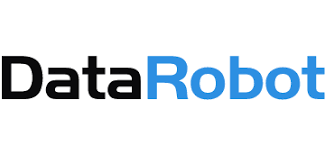
DataRobot is an enterprise AI platform that automates end-to-end data science workflows to help businesses build and deploy machine learning models faster. With its intuitive user interface and powerful automation capabilities, DataRobot enables organizations to unlock the value of their data and make more informed decisions. The platform offers a wide range of features, including automated machine learning, model management, and deployment, as well as collaboration and governance tools, making it an all-in-one solution for data-driven organizations. DataRobot is used by companies across industries, from finance and healthcare to retail and manufacturing, and has helped them achieve better business outcomes by enabling them to quickly and easily leverage their data for actionable insights.
Pros
Cons
Overall Rank
Planck

Max Planck was a German theoretical physicist who is widely regarded as the founder of quantum theory. He proposed the idea that energy is not continuous but exists in tiny packets known as quanta, which revolutionized the field of physics and laid the foundation for modern quantum mechanics. Planck's work in blackbody radiation, which he initially saw as a mathematical problem, led him to develop the concept of energy quantization. His theory explained how the energy of a blackbody is distributed and made it possible to calculate the amount of radiation emitted by a body at a given temperature. Planck was awarded the Nobel Prize in Physics in 1918 for his contributions to quantum theory, and his work continues to inspire scientists today.
Pros
Cons
Overall Rank
Sherpa
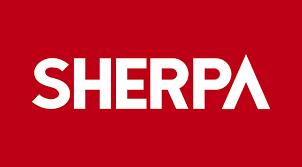
Sherpas are a unique ethnic group residing in the mountainous regions of Nepal, especially in the Solu-Khumbu district. They are known for their exceptional mountaineering skills, especially in the Himalayan region, and have become an essential part of many climbing expeditions to Mt. Everest. Sherpas have a rich cultural heritage and are famous for their hospitality, warmth, and strong sense of community. Sherpas have adapted to the harsh and demanding mountain environment and have developed an intimate knowledge of the terrain and climate, making them invaluable guides to trekkers and mountaineers seeking to explore the Himalayas.
Pros
Cons
Overall Rank
Betterview
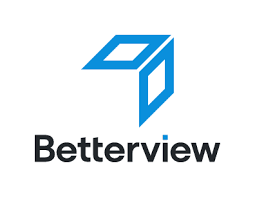
Betterview is a cutting-edge technology platform that specializes in providing property data and analytics to the insurance and real estate industries. Their unique software solutions allow property owners, managers, and insurance carriers to gather critical information about buildings and structures quickly and efficiently. Betterview utilizes aerial imagery, machine learning algorithms, and artificial intelligence to generate highly detailed property reports, including risk assessments, property conditions, and insurance underwriting. With its innovative approach to property analysis, Betterview has revolutionized the way the industry operates, making it easier for businesses to make informed decisions and manage their properties with greater efficiency.
Pros
Cons
Overall Rank
Quantemplate

Quantemplate is a data platform that provides an end-to-end solution for insurance companies to collect, normalize, and analyze data from various sources. Its advanced data analytics and machine learning capabilities enable insurers to make informed decisions, identify new opportunities, and optimize their operations. Quantemplate's intuitive interface allows users to create custom dashboards, reports, and visualizations to gain deeper insights into their business and customers. With its powerful data integration and automation tools, Quantemplate streamlines the entire data management process, saving insurers valuable time and resources.
Pros
Cons
Overall Rank
RiskGenius
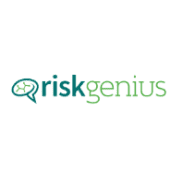
RiskGenius is an insurtech company that utilizes artificial intelligence and natural language processing to simplify the insurance policy review process. The platform allows insurance professionals to quickly and accurately analyze policy language, identify potential gaps in coverage, and compare policies side by side. This technology has the potential to revolutionize the insurance industry, improving efficiency, accuracy, and reducing the potential for errors and omissions.
Pros
Cons
Overall Rank
Kasko

Kasko is a type of insurance that provides coverage for damages or loss of the insured's vehicle due to accidents, theft, or other unforeseen events. It is an important investment for car owners as it can provide financial protection against unexpected expenses that may arise from accidents or incidents. Kasko insurance usually covers a wide range of risks, including collision damage, theft, fire, vandalism, natural disasters, and even personal accidents. With Kasko, car owners can enjoy peace of mind knowing that they are protected against the unexpected.
Pros
Cons
Overall Rank
In conclusion, AI tools are increasingly becoming essential for the insurance industry, offering a range of benefits such as improved efficiency, faster processing, and greater accuracy. By automating tasks and providing valuable insights, these tools are revolutionizing how insurance companies operate and interact with their customers. From fraud detection and risk assessment to customer service and claims processing, there are a variety of AI tools available that cater to the diverse needs of the insurance industry. Insurers must carefully evaluate their business requirements and choose the AI tools that best suit their needs, considering factors such as cost, usability, and integration capabilities. Ultimately, the adoption of AI tools in the insurance industry will continue to increase, and insurers who fail to embrace this technology risk being left behind. By leveraging the power of AI, insurance companies can streamline their operations, improve their customer service, and gain a competitive edge in an increasingly complex and competitive market.
